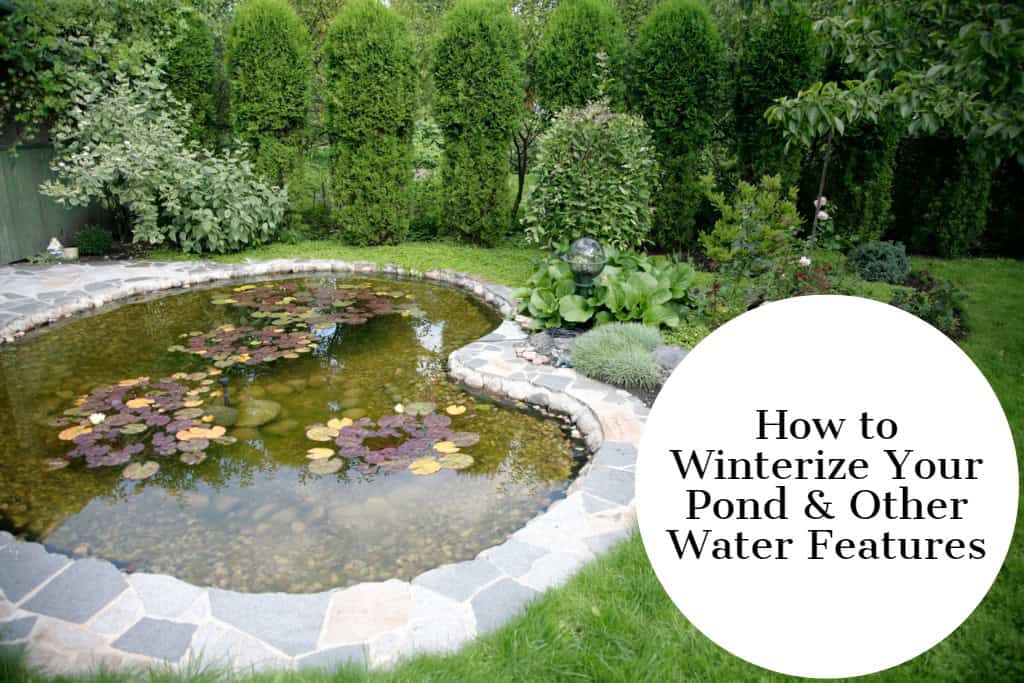
Watch Our How to Winterize Your Pond Video
January 9, 2020Winterizing your pond begins in the fall, as water temperature is a big factor in determining when is the right time to begin the winterization process for ponds and other water features.
Tips to Winterize Ponds
DiSabatino Landscaping of Delaware helps homeowners to properly take care of their hardscaping and landscaping investment. That is why we suggest that you complete the following steps to prepare ponds and other water features for the winter months ahead.
How to Winterize Living Ponds & Other Water Features:
- Debris Control: Clean out all debris, leaves and silt from the bottom of your pond. The cleaner you can get the pond before freezing weather comes, the healthier your pond will be throughout the winter. Ponds need to be covered with netting in the fall. This netting should be well above the surface so leaves can be easily cleaned. Use a fine-weave aquarium net to sift out excess sludge and debris.
- Water Change: A water change can be done anytime, but it is much more comfortable if it’s done before the water reaches 60◦ Remember to use dechlorinator if your water contains chlorine.
- De-Icer: Use a de-icer to keep a section of your pond open to allow oxygenation and gas exchange. This does not warm the overall water temperature of your pond. A de-icer simply allows toxic gasses to be released and oxygen to enter the pond.
- Pump Care: When temperatures drop below 40°F, the main pump should be removed and filters thoroughly cleaned. Do not leave the pump running on the bottom of the pond. It will lower the temperature of the entire pond by disrupting the natural thermal layers of the pond water as well as adding extreme stress on pond fish.
- Plant Care: Trim and remove any dying plant material as it appears to avoid debris build-up. In this area, bring inside all tropical plants and set all hardy water lilies to the bottom, if the pond is deep enough to keep them from freezing to the bottom.
- Fish Care: Depending on the water temperature will determine what food you feed you fish. Cooler temperatures make it harder for fish to digest food properly. Though it is important for fish to bulk up during the winter months, it is imperative that they not be overfed. As this is a complicated topic, here are more intricate instructions on fish care.
If you would like help with your landscaping needs, please get in touch
302-764-0408 | DiSabatinoInc.com
RELATED ARTICLES:
Fall is Great Time for Fire Pits!
Autumn Maintenance
Check Out Our Portfolio of Fireplaces & Fire Pits

DiSabatino Landscaping is Delaware’s #1 Hardscape and Landscape Specialist. We can help advise you what is best way to create outdoor fireplaces & fire pits Give us a call today! 302-764-0408